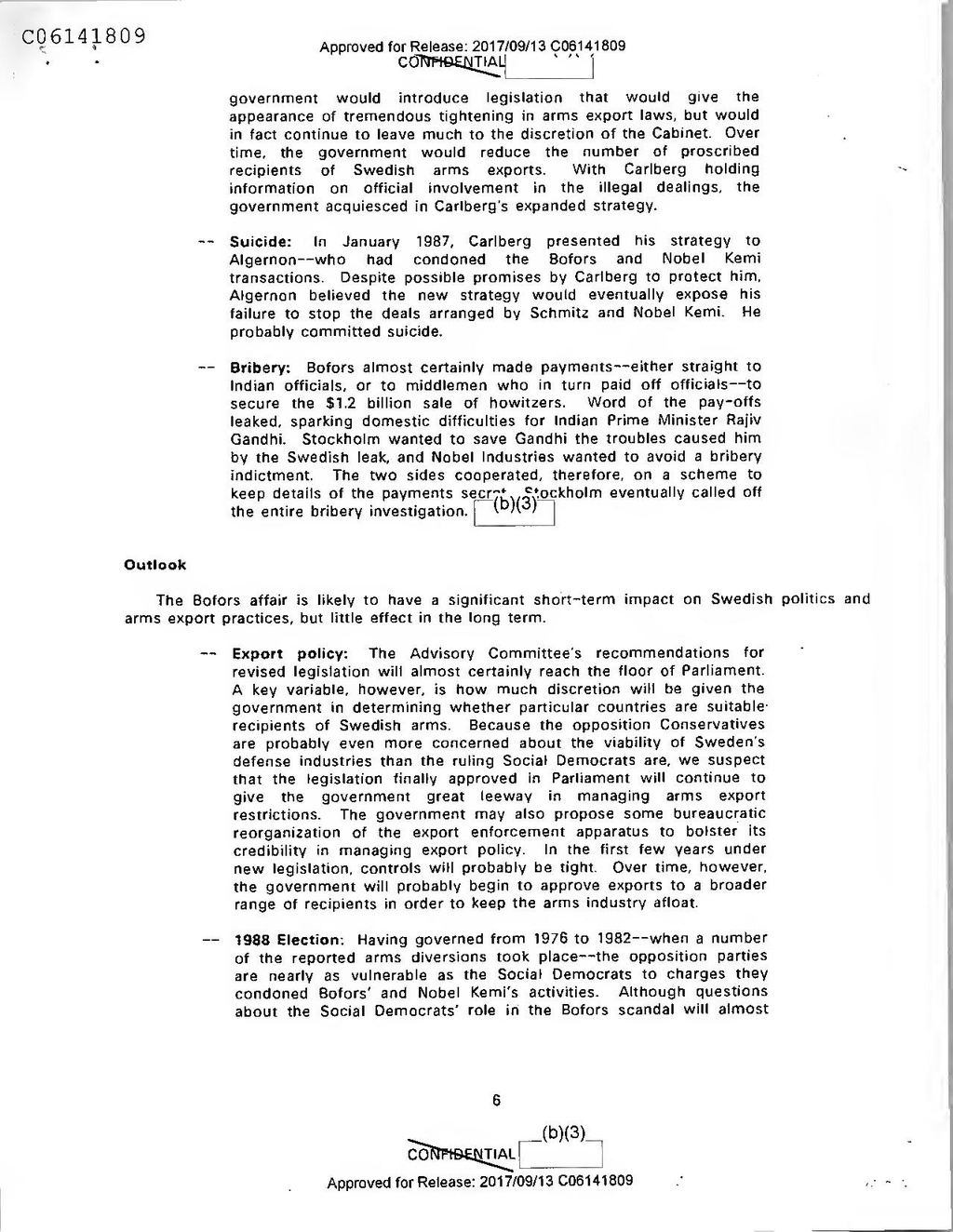government would introduce legislation that would give the appearance of tremendous tightening in arms export laws, but would in fact continue to leave much to the discretion of the Cabinet. Over time, the government would reduce the number of proscribed recipients of Swedish arms exports. With Carlberg holding information on Official involvement in the illegal dealings, the government acquiesced in Carlberg's expanded strategy.
Suicide: In January 1987, Carlberg presented his strategy to Algernon--who had condoned the Bofors and Nobel Kemi transactions. Despite possible promises by Carlberg to protect him, Algernon believed the new strategy would eventually expose his failure to stop the deals arranged by Schmitz and Nobel Kemi. He probably committed suicide.
Bribery: Bofors almost certainly made payments--either straight to Indian officials, or to middlemen who in turn paid off officials--to secure the $1.2 billion sale of howitzers. Word of the pay-offs leaked, sparking domestic difficulties for Indian Prime Minister Rajiv Gandhi. Stockholm wanted to save Gandhi the troubles caused him by the Swedish leak, and Nobel Industries wanted to avoid a bribery indictment. The two sides cooperated, therefore, on a sche to keep details of the payments secranstockholm eventually called off
(b)(3) the entire bribery investigation.
Outlook
The Bofors affair is likely to have a significant short-term impact on Swedish politics and arms export practices, but little effect in the long term.
Export policy: The Advisory Committee's recommendations for revised legislation will almost certainly reach the floor of Parliament. A key variable, however, is how much discretion will be given the government in determining whether particular countries are suitable: recipients of Swedish arms. Because the opposition Conservatives are probably even more concerned about the viability of Sweden's defense industries than the ruling Social Democrats are, we suspect that the legislation finally approved in Parliament will continue to give the
government great leeway in managing arms export restrictions. The government may also propose some bureaucratic reorganization of the export enforcement apparatus to bolster its credibility in managing export policy. In the first few years under new legislation, controls will probably be tight. Over time, however, the government will probably begin to approve exports to a broader range of recipients in order to keep the arms industry afloat.
1988 Election: Having governed from 1976 to 1982--when a number of the reported arms diversions took place--the opposition parties are nearly as vulnerable as the Social Democrats to charges they condoned Bofors' and Nobel Kemi's activities. Although questions about the Social Democrats' role in the Bofors scandal will almost
6
(b)(3)
CONFIDENTIAL
Approved for Release: 2017/09/13 C06141809
